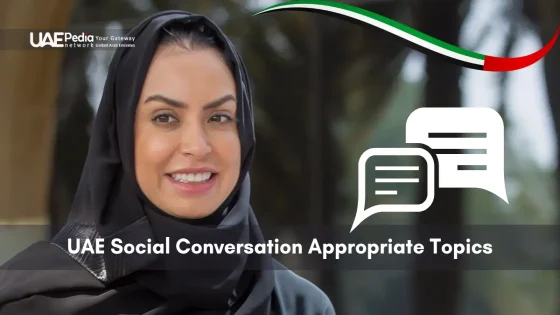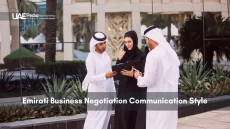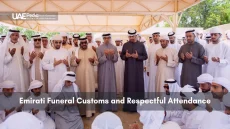Did you know over 1.9 billion people worldwide pause their mornings for a month-long spiritual journey? From late February to March 30 in 2025, days shift rhythm as communities embrace reflection and renewal. This period isn’t just about abstaining from food—it’s a tapestry of patience, gratitude, and connection woven into daily life.
For those new to this tradition, understanding its heartbeat helps foster empathy. Colleagues might adjust schedules for pre-dawn meals (suhoor) or break their fasts (iftar) after sunset. Small gestures—like avoiding lunch meetings or rescheduling coffee chats—can make a big difference. Yet no one expects you to mirror these practices; it’s about mutual respect, not mimicry.
Think of it as tuning into a cultural symphony. You’ll notice quieter afternoons, vibrant evening gatherings, and maybe even festive decorations lighting up offices. By staying mindful of these shifts, we create spaces where everyone thrives—whether they’re observing or supporting those who do.
Quick insights before we explore further:
- Global participation makes this one of humanity’s largest shared rituals
- Adjustments like flexible hours often align with energy levels throughout the day
- Simple awareness—like wishing “Happy Ramadan”—builds bridges without pressure
Understanding the Essence of Ramadan in the Workplace
Imagine a month where entire cities sync their rhythms to gratitude and connection. For many, this period transforms ordinary routines into acts of devotion—not just abstaining from meals, but recentering on purpose. At its core, it’s about nourishing the soul as much as the body.
The Spiritual and Cultural Importance
Fasting isn’t merely skipping lunch. It’s a daily reset—a chance to practice empathy and self-discipline. Pre-dawn meals become quiet moments of preparation, while sunset gatherings burst with laughter and shared plates. These rituals stitch communities tighter, creating bonds that last beyond the month.
Food takes on new meaning here. The evening iftar meal often starts with dates and water, echoing tradition. Families and friends reunite over steaming dishes, swapping stories between bites. Even workplaces adapt, as seen in this guide to graceful adjustments during these weeks.
Global Practices and Local Implications
From Dubai to Detroit, traditions vary but the spirit remains. Some regions host public feasts, while others prioritize intimate family dinners. In multicultural offices, you might notice:
- Colleagues swapping shifts to attend sunset gatherings
- Potluck lunches featuring global flavors
- Quiet spaces for midday reflection
Days feel shorter for those observing, energy peaking after dark. This shift impacts workflows subtly—think fewer morning meetings, more collaborative evenings. By recognizing these patterns, teams can harmonize productivity with cultural awareness.
Ramadan Workplace Etiquette Non Muslims: Essential Guidelines
Ever wondered how to harmonize daily workflows with spiritual rhythms? Balancing professional commitments with cultural awareness isn’t about grand gestures—it’s tuning into subtle cues. Think of it like adjusting your playlist to match the room’s vibe: a few thoughtful tweaks keep everyone in sync.
When Fasting Meets Focus
Many Muslims around the world maintain their fasts while excelling in their roles. Energy levels might dip post-lunch, but focus often sharpens in quieter morning hours. Pro tip: Save brainstorming sessions for pre-noon when engagement peaks, and avoid food-centric team events temporarily.
Sunset Signals Reset
The evening meal (iftar) isn’t just dinner—it’s a celebration of patience rewarded. Colleagues may step away precisely at sunset, so scheduling flexibility around these moments shows deep respect. One manager shared, “We shifted client calls by 15 minutes—it cost nothing but meant everything.”
Small shifts, like pausing water-cooler chats during fasting hours or sharing a virtual greeting at sunset, build bridges effortlessly. Most people appreciate the gesture, not perfection. After all, cultural harmony thrives in the details we notice—and the ones we gracefully overlook.
Supporting Muslim Colleagues with Flexible Work Arrangements
In 2023, 78% of multinational companies reported improved team cohesion after adopting flexible hours during spiritual observances. This shift isn’t about lowering standards—it’s about syncing productivity with human rhythms. Simple adjustments, like rotating meeting slots or offering asynchronous collaboration, keep teams thriving.
Adapting Meeting Schedules for Prayer Times
Sunrise to sunset, days follow a sacred cadence. Forward-thinking organizations now build buffers around prayer times, much like accounting for time zones. A tech startup in Chicago shifted daily standups by 20 minutes, freeing colleagues to honor midday devotions. Their CEO noted,
“Productivity didn’t dip—it deepened trust.”
Consider these global approaches:
- A London firm uses shared calendars where employees mark preferred working windows
- Dubai’s hybrid offices designate quiet rooms for reflection between tasks
- New York teams adopt “core hours” with flexible start/end times
For those facing challenges—like caring for the less fortunate or managing health needs—remote options become lifelines. One HR director shared, “A teammate in Manila fasted while supporting family abroad. Flex hours let her thrive both ways.”
Across industries, small tweaks yield big harmony. Whether rescheduling a brainstorm or offering shorter Fridays, it’s about respecting the unseen threads that weave us together.
Navigating Office Social Events During Ramadan
Office celebrations take on new flavors when aligning with spiritual rhythms. Think of it as swapping cake for connection—adjusting timing and format keeps camaraderie fresh without sidelining traditions. After all, shared moments matter more than menus.
Adjusting Brown-Bag and Happy Hour Gatherings
Midday lunches lose their spark when colleagues abstain from eating drinking. Instead, try sunset-adjacent mixers. One team in Seattle hosts “Sunset Snack Shares” 30 minutes before iftar, offering dates and juices. As a project lead noted, “It’s become our favorite way to unwind—everyone leaves energized.”
For morning events, focus on activities beyond meals. A quick trivia round or team walk fosters bonding without food pressure. Pro tip: Use the Islamic calendar to track shifting sunset times—apps like Muslim Pro offer real-time updates.
Considering Alternative Celebratory Approaches
Why not swap happy hours for hands-on experiences? A New York design firm launched “Art & Gratitude” sessions where teams create Ramadan-themed decor. Others organize charity drives, echoing the month’s focus on giving.
Remember: ways show care vary. Some appreciate adjusted schedules, while others prefer business as usual. A simple “How can we celebrate together?” opens dialogue. As one colleague shared, “Learning Ramadan traditions helped our team plan better—we even host an annual cultural Q&A now.”
Whether it’s rescheduling coffee breaks or decorating with lanterns, small shifts make space for everyone’s story. Because inclusivity isn’t about grand gestures—it’s tuning into the quiet hum of respect.
“Learn More About: Ramadan Etiquette for Expats Dubai Guide“
Managing Energy Levels and Work Expectations During the Fasting Month
Ever notice how afternoon slumps hit harder when your body’s running on empty? For those observing the fasting month, energy ebbs and flows like desert tides—morning focus fades as hunger sets in. Recognizing these shifts isn’t just kind—it’s smart business.
Rhythms of Renewal
Fasting reshapes daily stamina. Dehydration and fatigue often peak mid-afternoon, making complex tasks feel heavier. A Dubai HR manager shared, “We moved budget reviews to mornings—when clarity’s sharpest.” Teams thrive when aligning tasks with natural energy curves.
| Time Slot | Traditional Schedule | Adjusted Approach |
|---|---|---|
| 9–11 AM | Email catch-up | Strategic planning |
| 1–3 PM | Client pitches | Light admin tasks |
| 4–6 PM | Team meetings | Creative brainstorming |
Prayer breaks become natural resets. Brief pauses for reflection—like the five daily salah—can recharge focus. As noted in this guide to supporting colleagues, flexibility around these moments fosters trust.
Forward-thinking companies reduce back-to-back meetings. One tech firm cut afternoon sessions by 40%, reporting fewer errors and higher morale. “We swapped status updates for Slack threads,” said a project lead. “Productivity didn’t drop—it streamlined.”
Simple swaps make big differences:
- Hydration breaks instead of coffee runs
- Walking 1:1s to combat lethargy
- Quiet hours post-lunch for deep work
Planning around the UAE’s religious calendar helps teams sync naturally. Remember—it’s not about doing less, but doing smarter. When we honor the body’s needs, everyone wins.
Creating Prayer-Friendly Spaces in the Office Environment
What if your office could become a sanctuary of focus and renewal? Quiet corners aren’t just about silence—they’re portals to recentering. A 2024 Gallup study found 68% of employees feel more valued when employers accommodate spiritual needs. Simple adjustments transform cubicles into compassionate ecosystems.
Sanctuaries Between Spreadsheets
Designated reflection zones do double duty. They honor daily prayers while offering stress relief for all. Think of them as pit stops—a place to breathe before diving back into deadlines. One HR director shared:
“We repurposed a storage closet with floor cushions and dimmable lights. It’s now our most booked room.”
Sunset moments gain new meaning here. Post-workday reflections often stretch longer as colleagues unwind. Smart solutions include:
- Reserving conference rooms as “quiet zones” 15 minutes before dusk
- Adding prayer mats alongside yoga mats in wellness spaces
- Using digital signage to show available slots
These tweaks ripple beyond the holiday season. A Boston tech firm reported 31% fewer sick days after creating meditation nooks. Why? Spaces that respect inner lives fuel outer productivity.
Leadership sets the tone. When managers visibly support these areas—maybe by placing a “Do Not Disturb” sign during their own mindfulness breaks—it signals psychological safety. After all, work thrives where whole humans feel seen.
“Read Also: Dubai Mosque Visiting Rules for Tourists“
Encouraging Inclusivity and Cultural Sensitivity in the Workplace
Picture a team where every voice feels heard—a mosaic of traditions creating something greater. Building this starts with small, intentional steps that honor diverse rhythms. When we weave cultural awareness into daily operations, offices transform into spaces where belonging thrives naturally.
Implementing Training and Awareness Programs
Forward-thinking companies now use interactive workshops to demystify cultural practices. One global firm saw 42% higher retention after rolling out bite-sized e-learning modules about lunar cycles and annual traditions. These programs often highlight how moon sightings shape observances, helping teams sync schedules with shifting dates each year.
Updating organizational calendars matters too. Marking events like Eid or special prayer times—and sharing them company-wide—helps avoid scheduling conflicts. A Dubai-based manager noted, “Our team uses a shared digital calendar with moon phase alerts. It’s become our secret sauce for smoother planning.”
Fostering Open Communication Among Colleagues
Trust blooms when dialogue flows freely. Monthly “culture chats” let colleagues share personal traditions over coffee—no agenda, just curiosity. One New York team started a recipe exchange during these sessions, discovering dishes from every corner of the world.
Leaders set the tone by asking inclusive questions: “How can we support your needs this month?” or “What traditions matter most to your family?” This approach builds bridges, as seen in organizations that pair mentorship programs with holiday charity initiatives.
Remember—cultural harmony isn’t a checklist. It’s the quiet hum of respect that turns coworkers into allies. When we listen first and act second, everyone finds their rhythm.
Offering Accommodations and Flexible Policies During Ramadan
Flexibility isn’t just a perk—it’s the heartbeat of modern teamwork. Forward-thinking companies now sync schedules with cultural rhythms, like adjusting core hours around dawn and dusk meals. This approach honors personal needs while keeping projects on track.
Timing Is Everything
Early birds and night owls aren’t the only rhythms to consider. Many colleagues appreciate shifted start times or compressed workdays during sacred months. A Boston tech firm found success with this adjusted schedule:
| Traditional Day | Flexible Alternative |
|---|---|
| 9 AM–5 PM | 7 AM–3 PM + sunset break |
| 60-minute lunch | Two 20-minute reflection pauses |
| Fixed deadlines | 48-hour grace periods |
“We saw 22% fewer missed deadlines after implementing sunset buffers,” shared their operations lead. Teams also reduced meeting lengths by 25%, focusing on concise updates via chat.
Three strategies make this work:
- Rotating hours to match energy peaks
- Using shared calendars to flag high-weight tasks
- Splitting large projects into bite-sized goals
This consideration extends beyond schedules. One marketing team moved their quarterly workshop from afternoon to morning—avoiding hunger-induced fatigue. Another company introduced “focus Fridays” with no internal meetings, giving colleagues space to recharge.
“Small tweaks build big trust. Our team’s output improved when we stopped counting minutes and started honoring moments.”
By balancing structure with compassion, workplaces become ecosystems where everyone carries the weight together—lighter loads, brighter results.
Check out the below:
Closing Reflections: Celebrating a Harmonious Ramadan Work Culture
Cultural harmony thrives in shared rhythms—not just clocks syncing, but hearts aligning. Throughout this month, small adjustments transform offices into spaces where purpose and productivity coexist. By honoring energy shifts and sacred moments, teams unlock deeper connections that outlast any calendar.
Supportive policies—like flexible workday hours or sunset breaks—boost both output and morale. Imagine ending meetings 10 minutes early to let colleagues recharge, or hosting charity drives that mirror the season’s spirit of giving. These choices ripple beyond desks, weaving compassion into company DNA.
Consider organizing team iftars after daylight fades, or surprising colleagues with handwritten notes instead of food-centric gifts. Some companies partner with local mosque communities for cultural exchanges—simple gestures that build bridges. As one Dubai manager shared, “Our annual charity walk during this season unites everyone, fasting or not.”
True inclusivity isn’t a policy manual—it’s the everyday magic of noticing, adapting, and celebrating together. Whether adjusting project timelines or sharing sunset photos from home, these threads weave a vibrant cultural mosaic. Ready to write your team’s harmony chapter?
Small gestures matter—avoid scheduling lunch meetings during suhoor or iftar times, offer to cover tasks during peak fatigue hours, and express interest in learning about their traditions. Even a simple “Ramadan Kareem” greeting fosters connection.
Yes! Dawn (suhoor) and sunset (iftar) are sacred moments. Aim to wrap up by mid-afternoon when energy dips, and skip late-day deadlines. Use prayer time apps like Muslim Pro to align schedules respectfully.
Absolutely—just adapt. Swap midday meals for post-sunset gatherings, or focus on non-food activities like walking challenges. For iftar invitations, check preferences first—some may prefer family time, while others welcome shared moments.
Avoid assumptions. Fasting is personal—some may adjust due to pregnancy, diabetes, or other reasons. Maintain discretion; never question choices. Focus on universal respect rather than singling out individuals.
Zakat (almsgiving) peaks now. Partner with local NGOs for food drives or volunteer days. Even organizing a office donation box for Dubai’s “100 Million Meals” campaign aligns with the spirit of giving—without pressuring participation.
Subtlety wins. Twinkling fairy lights, dates on desks, or a “Ramadan Mubarak” banner add warmth. Skip loud decor—this is a reflective month. Ask Muslim team members for input to avoid cultural missteps.
No panic—apologize briefly and move on. Most understand it’s unintentional. Opt for designated break zones if possible, or discreetly snack at your desk. Awareness, not perfection, builds trust.


















